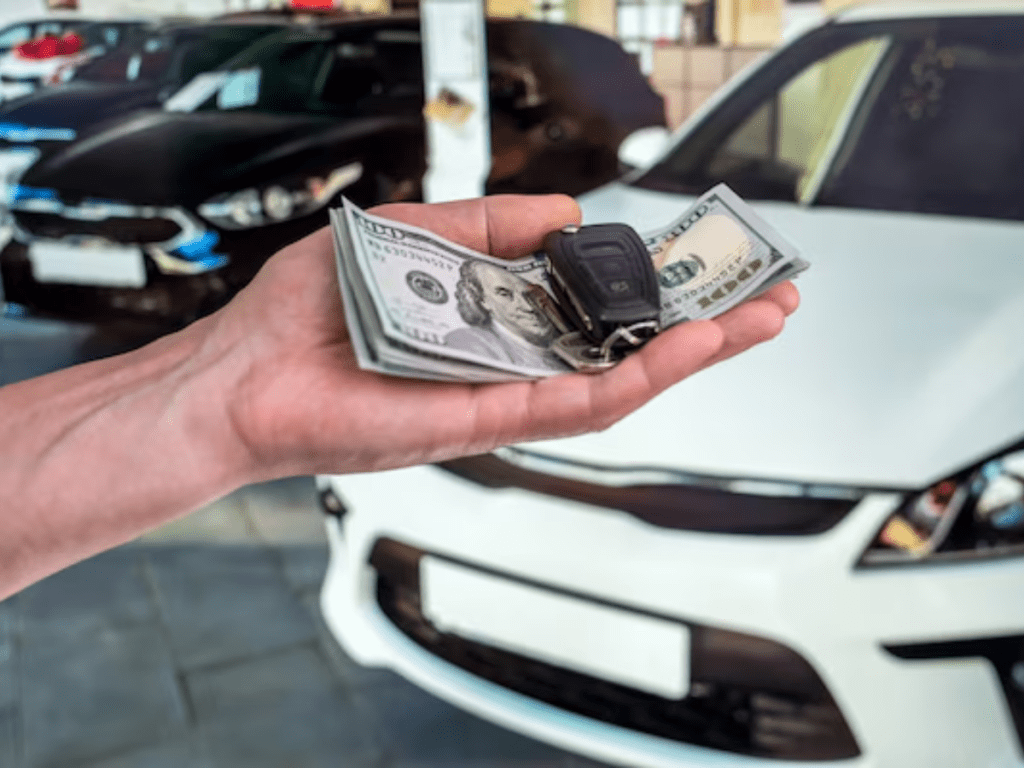Introduction
Purchasing or using a car is a significant financial decision that most individuals face at some point in their lives. For those who are looking to get behind the wheel of a new vehicle, there are two primary options to consider: taking out a car loan or opting for a car lease. Both choices are favorable and less so, varying based on one’s own choices, economic plans, and long-term strategies. The following in-depth guide shall provide insight into the most fundamental distinctions between leasing and car loans and how it could guide your own choice as a function of your financial life.
Knowing Car Loans
Car loan is a form of personal loan explicitly geared to allow a person to acquire a car. When you borrow money to buy a car, you borrow funds from a lender (most often a bank or financial institution) and promise to pay it back in monthly payments over a specified time, usually between three and seven years. The car you buy is used as collateral for the loan, so if you don’t make the payments as agreed, the lender can take the car away.
Key Features of Car Loans
- Ownership: Another great benefit of getting a car loan is that you actually own the vehicle at some point in time. When you have finished making all of the payments, the vehicle belongs to you and you can sell it, keep it, or trade it in as desired. This allows you long-term flexibility and value.
- Monthly Payments: The payments on a car loan are normally greater than leasing payments since you are paying for the whole price of the vehicle. But these payments will ultimately cease once you pay off the loan and own the car without any loans.
- Long-Term Investment: If you are going to keep the car for a significant number of years, a car loan is usually preferable. While you keep paying for it, the value of the car decreases over time, but when the loan is paid, the car still retains residual value, which you can recover through selling or trading it in.
- Mileage and Customization: There is no limit to the number of miles you drive or how much you customize your vehicle with a car loan. You can drive as much or make as many modifications to the vehicle as you prefer without having any penalties levied against you.
Disadvantages of Car Loans
- Higher Monthly Payments: Most car loans have higher monthly payments than leases since you are paying for the total worth of the vehicle. This may be stressful for your budget, particularly if you are buying a luxury car.
- Depreciation: When you buy a car, its value starts depreciating the moment you drive it away from the dealership. Although you still possess the vehicle, its resale value will be much less than what you initially paid.
- Maintenance Costs: With the passage of time, you will have to bear maintenance and repair expenses. Although some warranties will cover repairs for a limited time, you will have to pay out of pocket for routine maintenance or unexpected repairs after some time.
Understanding Car Leasing
Car leasing, however, is more similar to renting a car for a fixed amount of time, typically two to four years. If you lease a car, you pay monthly fees to the car dealership or leasing company to drive the car for a specific time. At the end of the lease time, you can either return the car, buy it at an agreed price, or lease another car.
Key Features of Car Leasing
- Lower Monthly Payments: Another key feature of car leasing is lower monthly payments. Because you are only financing the depreciation (the difference in value between when you begin the lease and when you end the lease term) of the car, your monthly payments are usually less than you would pay on a car loan.
- Newer Models: Leasing means you get to drive a new car every couple of years. You can trade in the vehicle at the conclusion of the lease term for a brand new one, staying abreast of new car technology and styling without long-term ownership worries.
- Reduced Repair Expenses: Most maintenance and repair expenses are normally covered in lease warranties, so you will not worry about costly repairs during the lease period. Still, you might still have to perform basic maintenance, such as oil change or tire rotation.
- No Concerns about Depreciation: Because you do not own the vehicle, you do not worry about its value decreasing over time. You merely return the vehicle at the conclusion of the lease period without having to worry about its resale value.
Disadvantages of Car Leasing
- No Ownership: The worst aspect of leasing is that you never become the owner of the car. When the lease expires, you have to return the vehicle unless you opt to purchase it. You are, in effect, paying for a car that you will not be keeping once the lease period is over.
- Mileage Limits: Most leasing agreements also have mileage limitations, typically in the range of 10,000 to 15,000 miles annually. If you put more than those miles on a leased vehicle, you will probably be charged an exorbitant fee for each mile over your limit, potentially making leasing cost-prohibitive if you’ll be driving a lot.
- Limitations of Customization: Leased vehicles cannot be customized as much as owned vehicles. You might be limited from making drastic changes or modifications to the vehicle, like adding custom rims or altering the interior.
- Long-Term Costs: Although leasing may be cheaper in the short term due to lower monthly payments, it could cost more in the long run if you continue to lease vehicles repeatedly. Since you never build equity in a leased car, you may end up paying for cars continuously without ever owning one.
Key Differences Between Car Loans and Leasing
To assist you in making a better decision, here’s the summary of the main differences between car loans and leasing:
- Ownership: When you have a car loan, you own the car free and clear after paying off the loan. However, when you lease a car, you’re basically renting a car for a certain amount of time, and you don’t own the car at the end of the lease period.
- Monthly Payments: Car loan payments tend to be more than lease payments since you are paying for the whole price of the car. Leasing tends to have lower monthly payments since you are only paying for the depreciation of the car.
- Mileage Limits: Leases come with mileage restrictions, usually between 10,000 to 15,000 miles per year. Exceeding these limits can result in significant fees. With a car loan, there are no such restrictions on mileage.
- Maintenance: Lease vehicles are sometimes still under warranty during the time of the lease, which also pays for several repair and maintenance expenses. Using a car loan, you maintain and repair vehicles after the manufacturer’s warranty.
- Long-Term Costs: Leasing could end up costing more in the long run if you’re always leasing cars and never actually own a car. Car loans, however, while having larger payments per month, let you eventually own your car and realize long-term benefits.
Which Option Is Right for You?
Ultimately, the choice between a car loan and leasing will be based on your individual financial circumstances, driving patterns, and long-term aspirations. The following are some of the considerations that you should use when making your decision:
Choose a Car Loan If:
- You would like to have long-term ownership and establish equity in your vehicle.
- You intend to drive extensively and don’t wish to be concerned with mileage limitations.
- You intend to keep the car for an extended period and avoid paying for a new vehicle every few years.
- You want the flexibility to customize the car to suit your preferences.
Opt for a Car Lease If:
- You prefer lower monthly payments and want to drive a new car every few years.
- You drive relatively low mileage and can stay within the lease limits.
- You do not want to worry about maintenance and repair expenses of a vehicle ownership.
- You are not interested in long-term car ownership and do not mind returning the car at the end of the lease.
Conclusion
Car loans and leasing each have their advantages and disadvantages, and the wiser financial option is based on your personal requirements and economic situation. If you like ownership and are willing to pay more each month, a car loan may be best for you. But if you like lower monthly payments, being able to drive a new vehicle every few years, and do not mind having to turn in the car when the lease period is over, leasing may be an excellent alternative.
Thoughtfully review your budget, lifestyle, and long-term goals before making a choice between leasing and a car loan so that you can make the right choice for your future finances.

